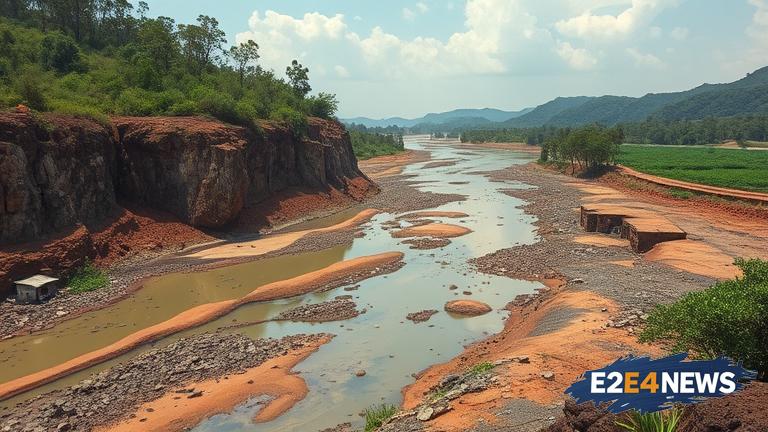The Mekong River, one of the most biodiverse and economically important waterways in the world, is under threat from severe pollution caused by lawless mining activities in Myanmar. The river, which flows through six countries including China, Laos, Thailand, Cambodia, and Vietnam, is home to over 1,300 species of fish and supports the livelihoods of millions of people. However, the unregulated mining of gold, tin, and other minerals in Myanmar’s portion of the river has led to the release of toxic chemicals and heavy metals into the water, posing a significant threat to the environment and human health. The mining activities, which are often carried out by small-scale operators with little regard for environmental or social responsibility, have been blamed for the pollution crisis. The Myanmar government has been criticized for its failure to regulate the mining industry and protect the environment. The pollution has already had a devastating impact on the river’s ecosystem, with many species of fish and other aquatic life disappearing or declining in number. The effects of the pollution are also being felt by local communities, who rely on the river for fishing, agriculture, and other livelihood activities. In addition to the environmental impacts, the pollution crisis is also having significant economic and social consequences. The Mekong River is a vital source of food and income for millions of people, and the pollution is threatening the livelihoods of these communities. The international community has called on the Myanmar government to take action to address the pollution crisis and regulate the mining industry. The Mekong River Commission, a regional organization that works to promote the sustainable development of the river, has also expressed concern about the pollution and called for greater cooperation and coordination among the countries that share the river. Despite the efforts of some organizations and individuals to raise awareness about the issue and push for action, the pollution crisis continues to worsen. The situation is further complicated by the fact that the mining activities are often carried out in remote and hard-to-reach areas, making it difficult for authorities to monitor and regulate the industry. The lack of effective regulation and enforcement has created a culture of impunity among mining operators, who feel that they can operate with little risk of being held accountable for their actions. The consequences of the pollution crisis are far-reaching and devastating, and it will require a concerted effort from governments, civil society, and the private sector to address the issue and protect the Mekong River. The international community must work together to support the countries that share the river and help them to develop and implement effective policies and regulations to prevent pollution and protect the environment. This will require a significant investment of time, money, and resources, but it is essential to ensure the long-term sustainability of the Mekong River and the livelihoods of the people who depend on it. The Mekong River is a precious and irreplaceable resource, and it is our responsibility to protect it for future generations. The pollution crisis is a wake-up call for all of us to take action and work together to address this critical issue. We must act now to prevent further damage and ensure that the Mekong River continues to thrive and support the livelihoods of millions of people. The future of the river and the people who depend on it depends on our ability to work together and take action to address the pollution crisis. The time for action is now, and we must not fail to respond to this critical challenge. The Mekong River is a vital part of the region’s ecosystem and economy, and its protection is essential for the well-being of millions of people. The pollution crisis is a complex and challenging issue, but it is not insurmountable. With the right policies, regulations, and investments, we can prevent further pollution and protect the Mekong River for future generations.
